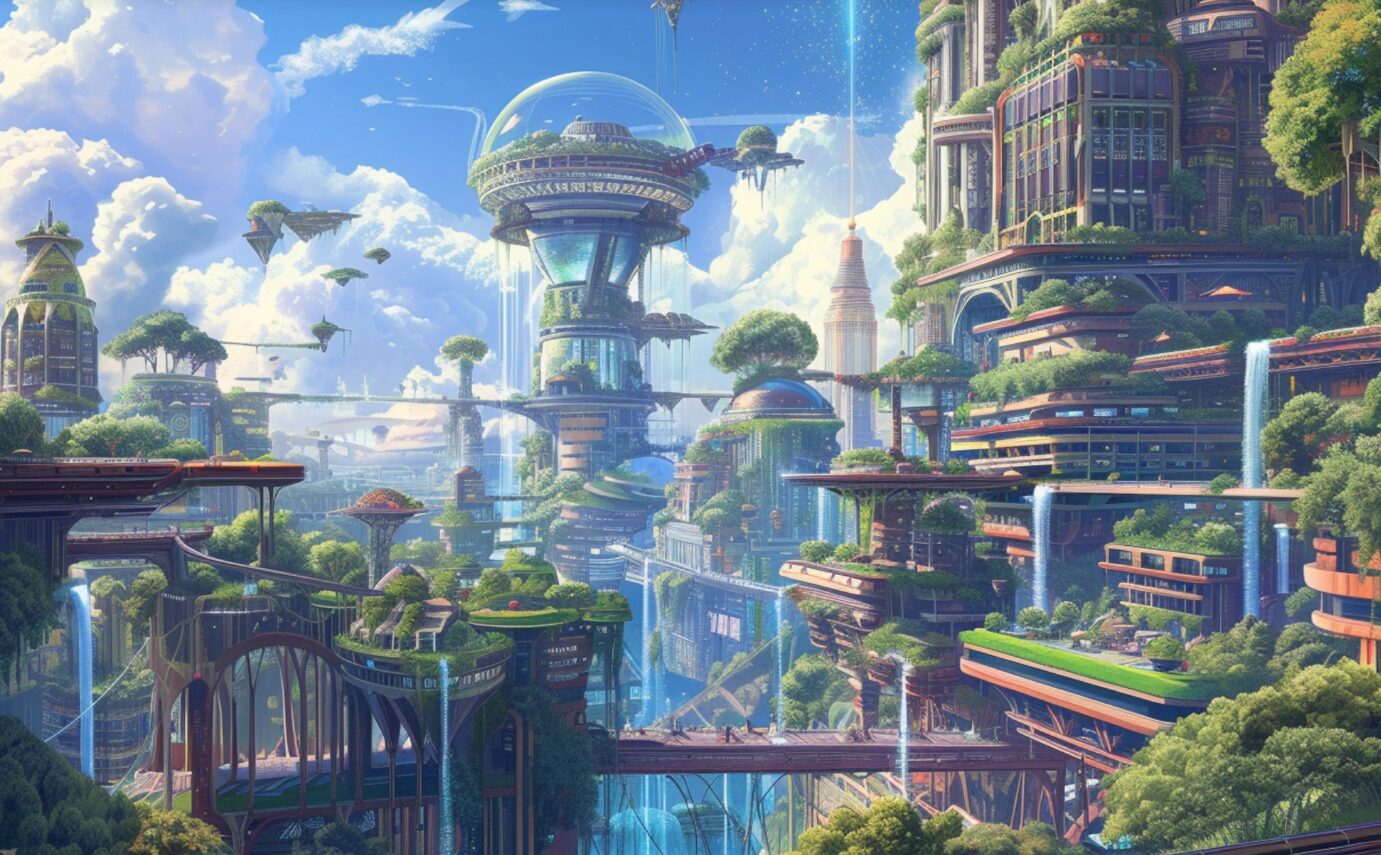Purposefully moving away from narratives which oscillate between bleak dystopias and naïve escapist utopias, is there a case for critical optimism to inform alternative tourism futures? As DMOs try to navigate the public sentiment between tourism advocacy and mitigating community criticism, how can we be critically and collectively imaginative when we engage with the problems which afflict the industry? We sat down with Rhys Williams, described as one of the leading voices of an emerging sub-genre of fantasy and science fiction Solarpunk, who challenges the aspiration of net zero tourism when critically re-imagining the industry.
At the CityDNA conference, you mentioned ‘educated hope’ and ‘critical optimism’ as a medium for imagining alternative ‘positive’ futures. What do you mean by this?
When I say educated hope and critical optimism it is about remaining hopeful but still holding onto the problems at hand. Go into the problems, rather than away from them. It’s about acting to make the world better without ignoring the difficulties and problems that exist, unlike some utopian narratives, where the aim to make things better seems to come without any acknowledgement of the issues at hand. What typically happens with those kinds of narratives, if they become real and succeed – is they tend to entrench existing problems, rather than deal with them. Social problems require social answers, political problems require political answers, and all too often the answer is a technological one, as if we are going to invent our way out of the issues at hand and draw a line under them. But that typically entrenches the problem and doesn’t make them any better.
How can this be related to the tourism industry?
Tourism, as it stands today, is a very climate unfriendly activity. It is starting from a difficult position. Since the 90s when there was a boom of cheap flights and package holidays, particularly with more privileged countries flying everywhere – tourism in that shape is one which is heavily dependent on cheap energy, cheap oil and on a model which discounts externalities. Tourism is by no means the only industry that does this. But tourism in this shape, can’t continue. It is literally the embodiment of the problem. The question is, what shape can tourism take? What would tourism look like if you didn’t discount externalities, and you don’t pretend that energy is free and cheap?
After your keynote, people were left inspired, provoked and I think productively disorientated… How can the room come together for a unified vision of the industry’s future?
What’s interesting is that I think everybody wants the same kind of thing, but we understand the meaning of things differently. Everyone wants people to have a good life, no one wants the tourism industry to destroy the places where it takes place. But people have different understandings of how progress works and what benefit looks like. What we are struggling against is 50 years of neoliberalism where people have a particular understanding of how good works – it is about raising GDP, productivity, economically orientated factors and measurements, and those aren’t the best way to measure things. Because when you look at things in that way you miss a lot of things on the ground, you miss the social, or human cultural factor. A country can have huge GDP and have enormous poverty.
Tourism and consumerism are closely related, when we travel, many of us consume more than ever. How can an industry which is rooted in consumerism imagine a sustainable future and what might the industry learn from Solarpunk here?
That’s the ‘benefit’ of tourism. When people come to a place, they spend lots of money. The question should be an infrastructural one: tourists spend lots of money, but where does it go? Connecting tourism here to Solarpunk would look like focusing on locals. How do residents relate to their local tourism industry? Is it imposed on them? In the good times, it can bring in money. But those benefits are a veneer over a genuine loss of autonomy. Solarpunk (and there are a lot of other political movements that say similar things) is about focusing on raising public democratic power. Beyond this, Solarpunk emphasises a careful and regenerative relationship to the environment – both natural and social. At a local level, this should come out in consideration of the capacities and limits of a place, and how to arrange tourism as something that actively improves the local environment, rather than takes from it. Feeding back into the place and the people.
When it comes to travel, however, tourism is in a sticky situation. Can it encourage the development of reliable and affordable public transport? Can it be used as a lever for tram systems, better and faster trains, comprehensive bus services? Can you make flights a last-possible option?
Can tourism ever be weightless with zero negative impact? What could that look like?
I think weightless is impossible, it is a dream and a mirage. The idea that it can be weightless, is the problem. You can have it exactly as it is now – but with no environmental costs… that’s a techno-utopian fantasy. There will always be weight, entanglement, costs, with the world. You are always going to have to fuel the planes, set aside resources for the people who come and stay, there will always be costs involved. The question is which ones? Decide consciously and clearly, and with the people who are affected by it, what are the costs and which ones we should choose to critically face. I should say there is a negotiation, but there is also point where you just have to stop. Whatever and however that looks like.

